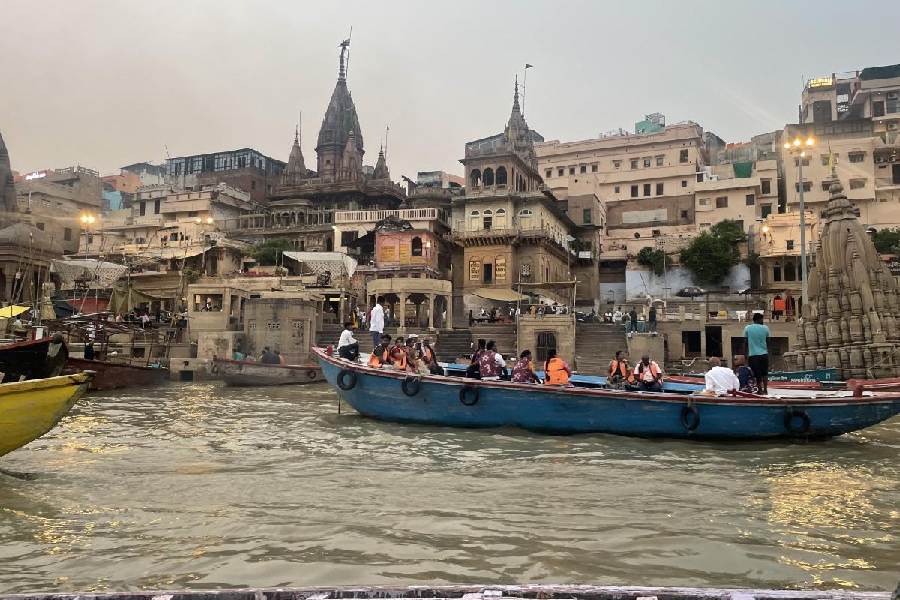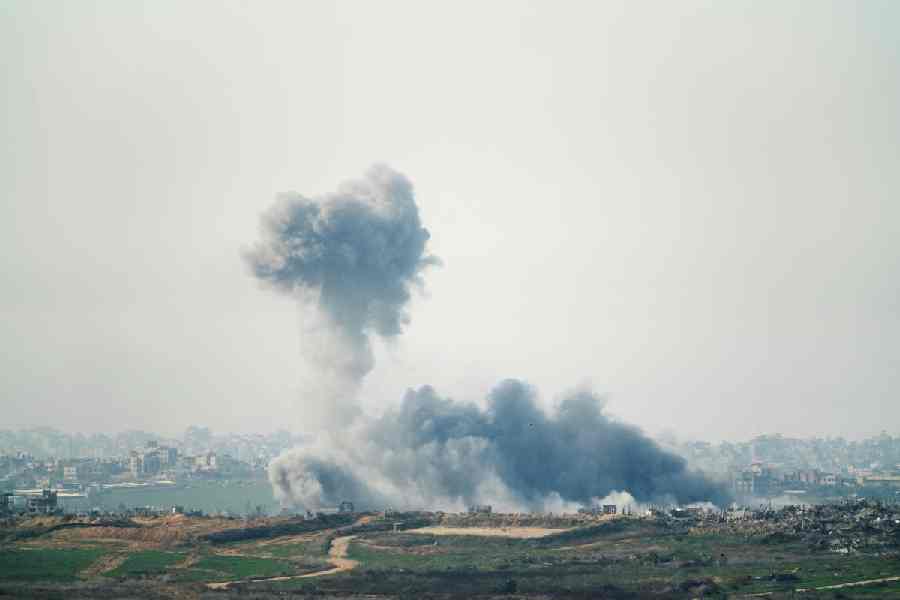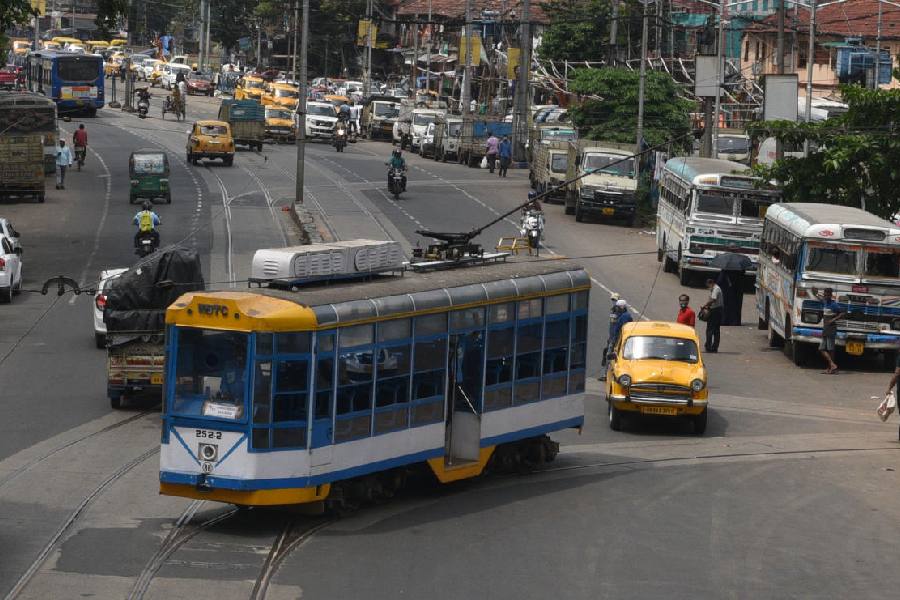They kept planning but never had occasion to go to Benares, not in all these years. And then, he was gone, and just like that Benares became the only place they could arrive at.
Not ritual, nor religion, no long-kept promise for the redeeming, nor any thought of heaven or hell, nor any hankering for relief or release pulled them to Kashi. But then again it is possible that their non-reason was an amalgam of all those things.
Many weeks later, all that remained of the journey was one evening, river, sky, moon, wind, all whispering some ancient wisdom.
At first it would have felt stark, the three of them in a boat. Their companions were their old concerns — how would he have done this, would he have endured that — not growing, but still robust. The new grief too climbed in, awkward, serrated, unaware of its own edges.
The ghats stood at attention like sentries from a different time. Shitla, Brahma, Ahilya. She repeated each name under her breath for him to hear and add footnote to as he used to, but nothing happened. The motorboat kept pushing through the greenish waters.
It had rained heavily earlier that month and the month before that. The steps were still covered in thick layers of telltale mud. From inside the little sputtering motor boat, one could see at a distance a man working a small pump fitted with a pipe, washing the mud off.
Raja, Sankata, Prahlad, Mira. Together and apart, they sounded incantation-like. For a while it must have felt comforting, to be so close to so much vastness, the waters, the horizon. Or was it unnerving? Who knows?
Naya, Gola, Tripurabhairavi, Digpatia. The last ghat has a Bengal connection or so the guide-cum-boatman was saying.
When he was there, his knowing was to her a flowing stream. All she ever had to do was swing a question in it at whim and pluck out answers. If she spilled some she didn’t particularly care; she could always go back, again and again and again. Now, the boatman was pointing and saying something about the Alamgir Masjid built by Aurangzeb on Panchganga Ghat. She would have liked to hear some more, but the raucous motor drowned his voice.
The facades of the historic riverfront structures had a stoic appearance, in complete contrast to the enviable normal that the ghats themselves were platform to. Two scrawny boys at Bundi-parkota Ghat, standing a metreor two apart from each other, deep in conversation; a family of five at Bhonsale Ghat, clutching onto the last step, holding hands, taking a dip; the bored cows at Scindia Ghat.
Sakka, Ram, Janki, Gai. Red, yellow and indigo flags, stuck on wooden poles with something like a basket close to the top. “Bird feed,” said the boatman, when asked later. From well behind waters, flags, steps and sombre edifices, peeped cheeky many-storeyed structures in lurid blues and yellows and pinks — this hotel, that lodge, something school. There were all those signages of saree shops, silk sarees to be specific. He, so full of effortless witticisms, she wondered what silken thing he would have come up with.
Manikarnika. Dashashwamedh. Assi. The electric lights came on one by one. The waters turned garrulous with boats of every possible shape and size, each full of people in fluorescent orange life jackets. The boatman handed them theirs; something about police checking beyond that point. No, no one wants to drown, if they can help it.
Harishchandra Ghat was covered with many unlit pyres. On the way to Raj Ghat the taxi driver had said practisedly, “You know, people come to die in Benares.” She watched the black smoke rise from the lone burning pyre, up, up and up, become a bird, a whole flock and then flap away into the vast sky. Those who don’t get to die in Benares, what happens to them, she must have wondered. Is it really a longer route for them to wherever?
At one point during the journey forward, when the sky had already turned black, and the waters even blacker, under the watchful gaze of the full moon, they lit five diyas and set them afloat. When they looked back all they could see were three diyas bobbing up and down comically, struggling to stay afloat. “Like us three, following him,” said the oldest of the three, softly.
She reached inside her bag for her phone. Stored away in the voice memo was a recording from another October. His voice, loud and fond, reciting the olden lines: Devi sureshwari bhagawati gange/tribhuvanatarini tarala-tarange/shankaramauliviharini vimale/mama matirastam tava padakamale…










